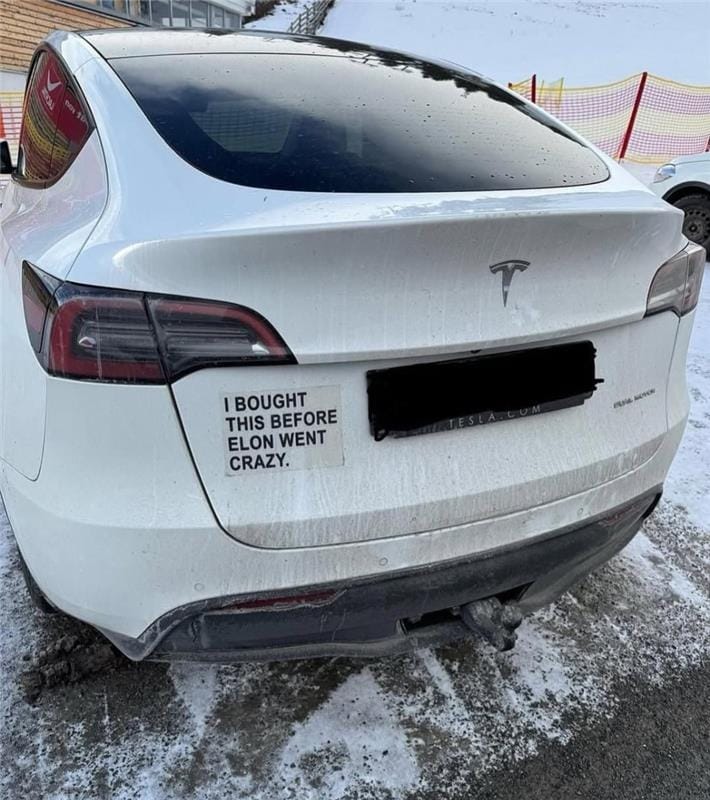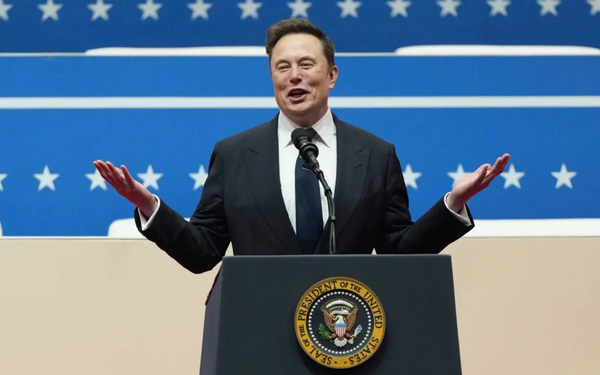Elon Musk has long been synonymous with Tesla—more than just its CEO, he has served as its chief evangelist, helping turn an electric vehicle startup into the dominant force in the EV industry. Tesla wasn’t just about cars; it was about a vision of the future—sustainability, innovation, and technological superiority.
However, since 2024, Musk’s increasingly vocal alignment with Donald Trump and international far-right movements has fundamentally altered how Tesla is perceived. While some investors worry about reputational damage and regulatory risks, the bigger question is whether Tesla’s shifting customer base will sustain its long-term success.
Can Tesla maintain its appeal among its historically progressive, environmentally-conscious buyers, or is Musk’s political turn leading the company into a fundamentally different consumer market—one that may not be as naturally aligned with Tesla’s product?
1. Who Were Tesla’s Customers Before 2024?
Before Musk’s full-throated political engagement in 2024, Tesla’s core customer base was distinct from traditional car buyers.
Demographics of Tesla Owners (Pre-2024)
Tesla’s customer base has historically leaned towards wealthy, progressive, and environmentally-conscious buyers.
- Partisan Divide in EV Adoption – Pew Research (2023) found that 71% of Republicans were unlikely to consider EVs, compared to only 17% of Democrats. CivicScience data confirmed that Democrats were twice as likely as Republicans to buy an EV.
- Liberal Favorability Trends – Tesla was once strongly favored by left-leaning consumers, but between January 2024 and July 2024, favorability among Democrats collapsed from 39% to 16%.
- Geographic Clustering – Tesla’s strongest U.S. markets were California, Washington, Massachusetts, and New York—all deep-blue states. California alone accounted for 34% of all U.S. EV registrations.
This early adopter group was motivated by:
- Technology & Status – Tesla was seen as an aspirational, high-tech product, much like the iPhone in its early days.
- Environmental Benefits – Many Tesla buyers were attracted by its zero-emissions branding and government incentives.
- Affluent Urban Buyers – Tesla’s Model S and Model X were initially luxury vehicles appealing to high-income professionals, often in coastal cities.
2. The Psychographics of a Shifting Customer Base
How Musk’s Politics Have Alienated His Base
Musk’s pro-Trump rhetoric, engagement with far-right figures, and social media activism have led to a sharp decline in favorability among Tesla’s traditional buyers:
- Brand Association Risks – A NYT survey of 7,500 respondents found that many now associate Tesla with Musk’s far-right rhetoric, antisemitism controversies, and management of X (formerly Twitter). Some likened driving a Tesla to “displaying a large red MAGA hat.”
- Drop in Democrat Ownership – Among existing Tesla owners, Democrats made up 39% of buyers in 2023, but by 2024, that number had dropped to 26%.
Can Tesla Gain Conservative Buyers?
Musk’s hyperpolitical stance may be aimed at shifting Tesla’s customer base to a more conservative demographic, but the data suggests significant obstacles:
- Conservatives Have Been Historically Skeptical of EVs – A 2023 Pew Research study found that Republicans were far less likely to consider an EV purchase, even after Tesla’s branding shift.
- Tesla’s Identity Crisis – Many Tesla buyers were drawn to the prestige, innovation, and environmental benefits. If Tesla becomes just another partisan brand, it could lose its luxury cachet.
Additionally, despite Musk’s shift, Republican favorability also dropped—from 36% in January 2024 to 23% by mid-year though it’s entirely possible this has not only rebounded but grown since the election despite inter-MAGA ideological battles about immigration.
If Musk were to alienate not only his original progressive customers but also somehow alienate a sizeable portion of the MAGA base, the loss of that original customer base without gaining enough new conservative buyers to offset the decline will spell big trouble.
3. Market Share and Brand Perception Erosion
Tesla’s market share and brand value have suffered in 2024, correlating with Musk’s increased political engagement.
- U.S. Market Share Decline – Tesla’s EV market dominance in the U.S. fell below 50% in 2024, with Toyota (30%) and Ford (22%) gaining ground.
- European Backlash – Registrations dropped 13% in Europe (44% in Germany) amid backlash over Musk’s endorsement of the AfD party and other far-right movements.
- Brand Value Drop – Tesla’s brand value fell by 26% ($15 billion) in 2024, largely due to Musk’s controversies and an aging vehicle lineup.
- “Tesla Shame” Phenomenon – In the Netherlands, 31% of Tesla owners considered selling their cars due to association with Musk’s politics.
This shift in perception suggests that Musk’s politics may not just be polarizing—it may be undermining Tesla’s long-term brand equity.
4. Policy Risks Under Trump’s Influence
Musk’s alignment with Trump has introduced regulatory uncertainty that could impact Tesla’s financial outlook.
- Loss of EV Tax Credits – Trump has promised to end the $7,500 federal EV tax credit, which has historically boosted Tesla sales.
- Regulatory Credits at Risk – Tesla has earned $9 billion from selling carbon credits, but this revenue stream faces risk if Trump dismantles emissions standards.
- Tariff Contradictions – While Trump’s 100% tariffs on Chinese EVs could protect Tesla from BYD, Musk’s opposition to tariffs puts him at odds with Trump on trade.
Even as Musk positions Tesla as a Trump-friendly brand, Tesla’s reliance on federal incentives and global markets makes it highly vulnerable to policy shifts.
5. Conclusion: A Risky Bet on a Shifting Market
Musk’s increasing hyperpolitical presence introduces a new challenge for Tesla: whether its product and brand identity can successfully shift to a more conservative consumer base without alienating its original core audience.
While Musk may believe he has already captured the progressive EV market, that assumption relies on Tesla’s brand remaining aspirational and future-focused.
If Tesla becomes just another partisan symbol, it risks losing:
- Liberal buyers who made up Tesla’s foundation (favorability among Democrats collapsed from 39% to 16% in 2024).
- Moderate and status-driven buyers who may avoid Tesla due to political baggage.
- Conservatives who remain largely skeptical of EVs, despite Musk’s political alignment.
Ultimately, Tesla is no longer just a car company—it’s a political symbol. The question is whether that polarization will accelerate or stall its trajectory.







